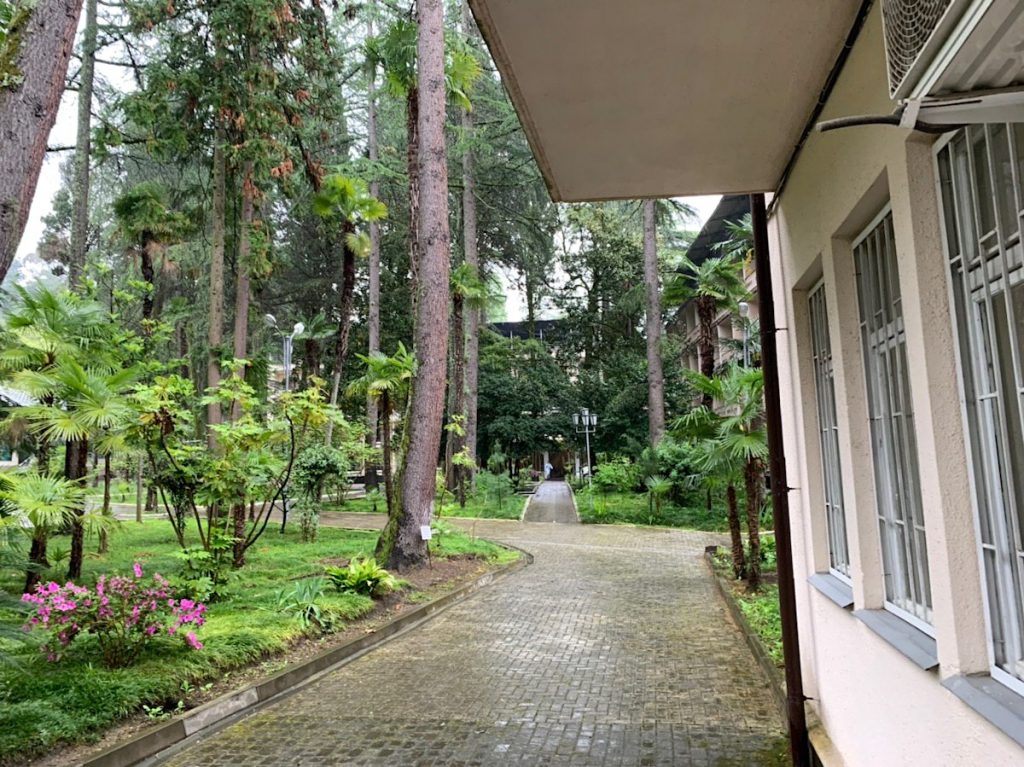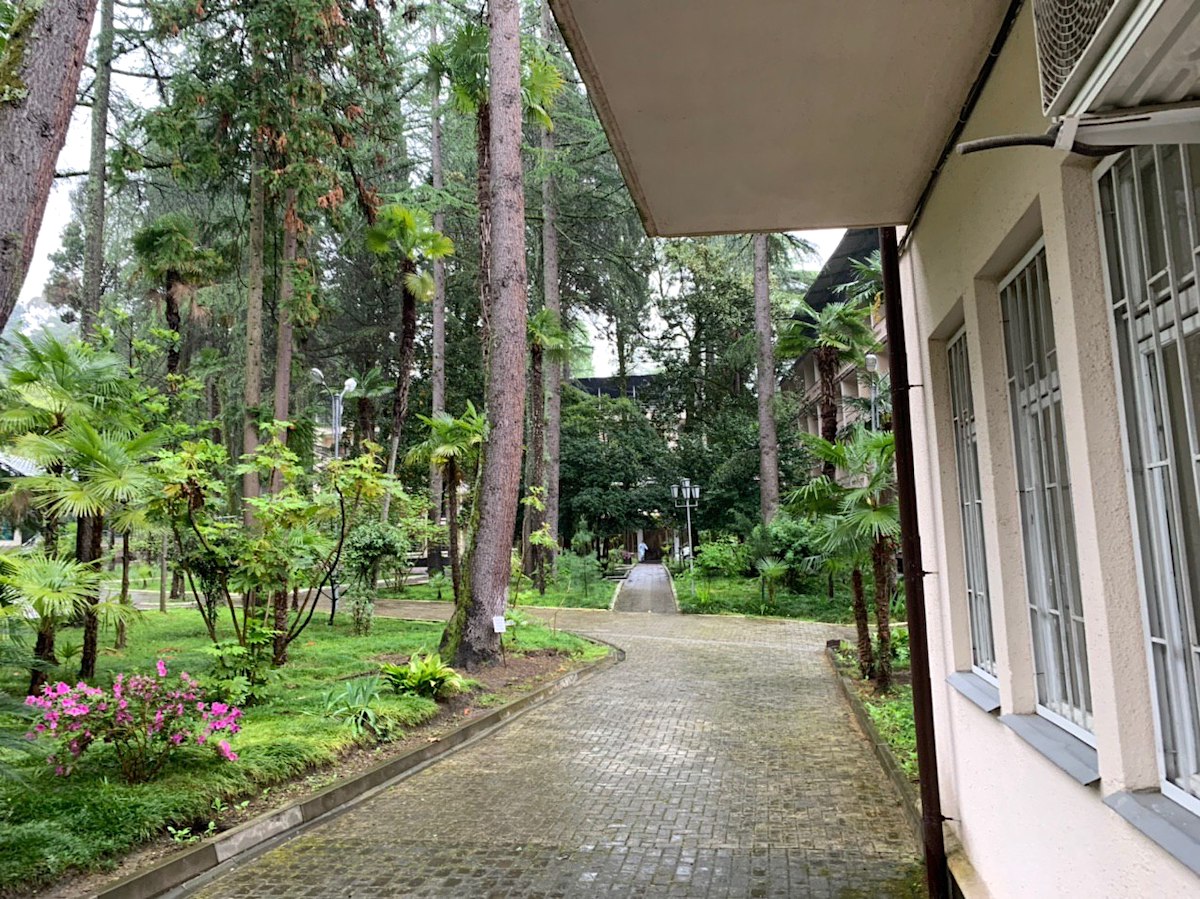Abkhazia: seven cadets with coronavirus and without symptoms. Stories from the clinic and quarantine
Seven cadets were diagnosed with COVID-19 in Abkhazia on May 9 after returning home from Russian military schools. All of them are asymptomatic.
For almost three weeks leading up to this, not a single case was recorded in Abkhazia. In total, 10 cases have been reported here since the onset of the coronavirus epidemic. Two of them recovered. But the third, 95-year-old woman, died.
It is reported that one of the cadets has already fully recovered and will be discharged on May 16.
More than 200 people have been put in quarantine since returning home from Russia, where they study or work.
- Russia’s strange coronavirus statistics: excellent healthcare or Putin’s bid to stay in power?
- “I have a fever of 37.5 °C. What do I do?” To get coronavirus treatment in Moscow, you need money, connections. Personal stories
- Coronavirus politics: why has Armenia become the regional leader in coronavirus deaths?
“He has absolutely no symptoms. No fever, cough, or even weakness,” says Anna about her son, a student at Moscow Military University.
20-year-old Salman was diagnosed with COVID-19 on May 9.
Two days prior, the young man returned home from Moscow. He was one of a group of 25 people, all of them cadets of the Military University of the Russian Ministry of Defense.
The decision to test them was made after COVID-19 was discovered among their colleagues from South Ossetia. As a result, seven Abkhaz cadets were diagnosed.
They were quarantined in the Aitar spa in Sukhum, and they were immediately transferred to a hospital in the city of Gudauta, which was specially equipped for treating COVID-19.
Anna says that despite the absence of symptoms, her son was given antibiotics, as doctors saw a dark spot on his lung X-ray.
Both the stay in the hospital and in the Aitar Hotel is free. But they pay around six euros for their three meals a day.
“The hospital already has all the necessary drugs. They didn’t ask us to buy anything,” says Anna Salman’s mother. “The authorities are also constantly in touch with us, Prime Minister Ankvab called, he was interested in the condition of my son, and whether we had contact with any other members of the local population.”
Anna says the entire group of cadets flew in the same plane, then were transported by special vehicles to the Russian-Abkhaz border, where they were taken by bus to the Aitar Hotel. They did not get a chance to hug their parents.
“I asked the escort to allow me to come at least two meters closer to my son so that he could see me, but they wouldn’t let us,” says Anna.
“Salman said that earlier one member of his group felt weak and had headaches, someone else lost their sense of smell. They went to the medical unit, but they were told that they are strong and healthy, and that if they had no temperature, then they should just wait it out in their room. They were monitored, but not hospitalized, because they thought there was no need,” says Anna.
Salman had had headaches a week before his departure, but his mother had hoped until the very last minute that this was a reaction to stress, not the virus.
Anna said she wanted her son to come home and be close to her. But at the same time, it seemed that Russian medicine would be more capable of handling the disease if Salman became ill.
But her opinion changed after talking with the immunologist Alice Matua, primarily because she is in constant contact with her.
“She tells us about my son’s condition, and about his treatment regimen. It is unlikely that we would be in such close contact with any Moscow doctor. I felt that our doctors treat our children like relatives,” says Anna.
Nevertheless, she is trying to monitor the treatment process by questioning doctors she knows in Russia how correct the Abkhaz doctors’ prescriptions are.
Salman says that the Gudauta hospital is comfortable, they are well-fed with and tasty food, and nurses even make them coffee and treat them with fruit.
Anna does not hide her son’s diagnosis. She is in constant contact with other parents of cadets, those who are already undergoing treatment at the hospital, and those whose children are in quarantine. “A lot depends on our mood and attitude to what is happening,” she says.
In the quarantine

Kan is a student at a military university in Saint Petersburg. For about a week, he and one of his fellow students have been spending their days in a double room in Aitara. They play backgammon, cards, chat or surf the web.
Four times a day, someone knocks on their door to pass them breakfast, lunch, dinner and to measure the temperature.
“The thermometers are not normal, but rather non-contact – the person stands at decent distance away and just points the device at me. I haven’t had a fever yet,” says Kan.
Before leaving St. Petersburg, he and his colleagues were tested for COVID-19. The results came back negative, and they were in good health, therefore, as Kan says, he had no doubts about his health.
Self-isolation at your own free will
Laura Tarnava arrived from Moscow on March 28. At the time, those who were arriving from abroad did not need to sit out the incubation period in self-isolation. But Laura, watching what was happening in the world, decided not to risk the health of loved ones and to isolate herself in her apartment.
And, as she says, she also benefited from the experience.
“I watched movies that had been on my list for a long time, I read books that were gathering dust on shelves and hopelessly waiting for their time to shine, for example, Chekhov. Friends and relatives left groceries on the doorstep of my apartment. I was very comfortable,” says Laura.
Now she is able to calmly walk around the city without fear of infecting someone. He says that the situation in Abkhazia will remain stable as long as there is tight control at the border, and all the high-risk groups are isolated.
Currently, a quarantine regime is in force in Abkhazia. Educational institutions, public catering and theaters do not work, public events are prohibited. Markets operate three times a week.
Both entrances to Abkhazia are completely closed, and only in special cases specified by law can people cross over from Russia and Georgia.
Official information states that seven to 40 people are tested every day for COVID-19 in Abkhazia.





















